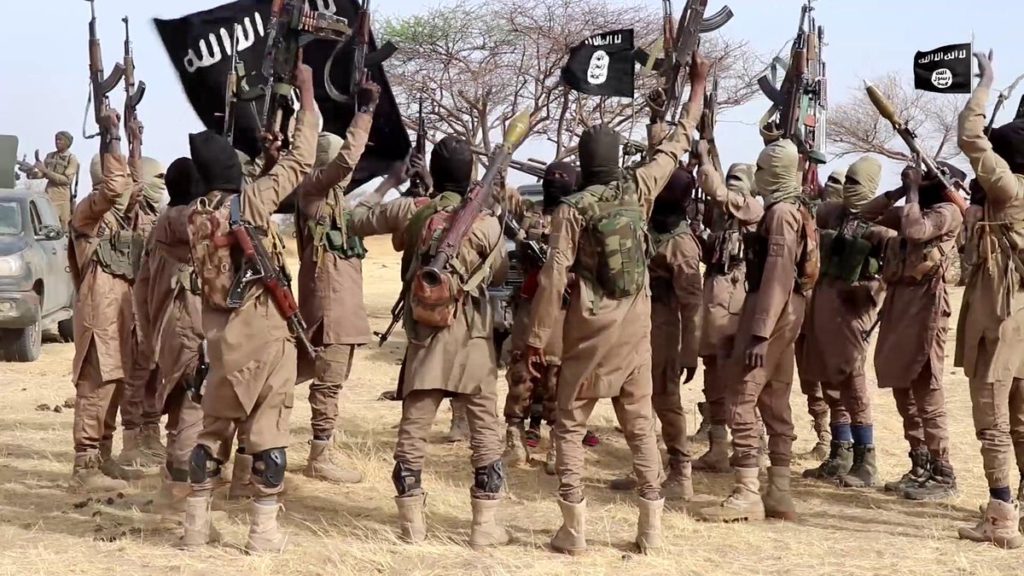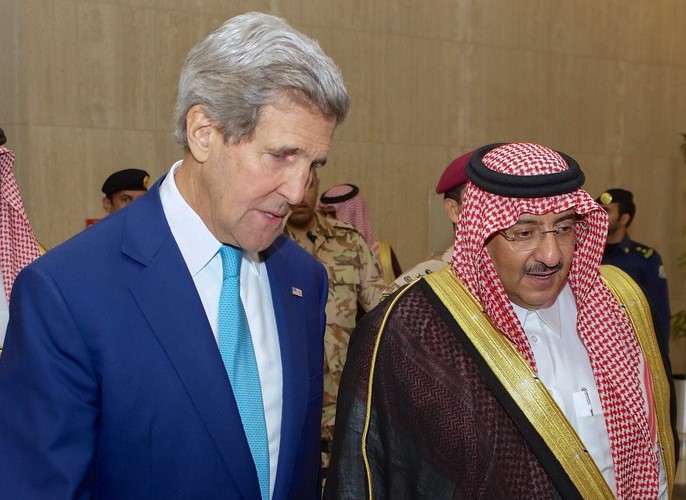Context
As the global campaign against extremism progresses along, there is a need to understand the evolving dynamics of this fight that got initiated after 9/11. Although a lot has been written about the circumstances that persisted in the immediate aftermath of 9/11, the matters have gotten a lot more convoluted ever since. Now, there appears to be confusion about what the goals are, and what state of affairs would represent the end of this campaign.
Election cycles, corporate interests, over reliance on military means etc., have all played a part in limiting our intellectually understanding about what has been transpiring, and how to counter it for the short and long-term.
Brutal attacks on civilians that are common occurrences in the regions inflicted by extremism are now also taking place in major Western cities. Although it’s not clear if the perpetrators of these strikes were directly linked to extremist groups residing in other continents, the question remains: what more can be done to stop the scourge that continues to inflict the humanity? At risk now are the very diversity and multiculturalism of Europe and North America. The threat of extremists accompanied by economic circumstances is giving to rise to the type of ethnic nationalism, bigotry, and xenophobia that were thought to be forever forgotten since the world wars.
Analysis
The Ground Situation
The strategy on how to deal with Islamic extremism has primarily revolved around countering it in the military, political, ideological, and financial domain. While military domain has achieved successes other areas have lagged consistently behind. The least progress has been made in the ideological and political arena.
Where areas have been cleansed of extremists, it has been difficult to re-cultivate people and provide political governance. This is mainly because the funds for rehabilitation are usually to slow to come in, and secondly, the societies in these areas have been so fragmented by the prolonged ideological wars that it has proven very difficult, if not impossible, to put the pieces back together easily.
Where structures for political governance and security have been installed, they are fragile and need consistent hand holding to make hard decisions and survive. The ‘Unity Government’ model is not moving or delivering fast enough whether it be Iraq or Afghanistan.
As far as the political solutions are concerned, the argument is that the ideological positions of extremists are so extreme, and their acts so heinous, that they cannot be reconciled with. This has led to the predicament where the arch of instability is widening, and what started in Afghanistan and Iraq has now spread across many borders and regions.
Differentiating between the reconcilable and irreconcilable have also not cured the situation, and may have made matter even worse. This strategy while helps to divide the bigger group, but often results in splinter factions, adding to the burden for security officials to monitor even more groups and individuals.
With expanding misery for the masses impacted by the campaign, and many more refugees, the message of the extremists resonates even more, if not out of conviction then simply out of necessity to survive.
Transformation of Non-State Actors and Conflicting Interests
When the campaign against extremism got underway it had a clear-cut goal of eliminating the culprits’ behinds the 9/11 attack and whoever supported them. NATO, its allies, and the ‘Coalition of the Willing’ in Iraq took up the challenge.
Al Qaeda was weakened over the years, with the milestone of eliminating its leader Osama bin Laden achieved in 2011. However, the demise of Osama bin Laden has been accompanied by the rise of the phenomenon of ‘AQ and Associates’ and ISIS/ISIL/Daesh.
Moreover, overtime the event of 9/11 has been politically exploited. Militants fighting in Kashmir or in Palestine, and political opponents in the nations inflicted by extremism, were also conveniently labeled as extremists.
While there has been a broad agreement that groups with global ambition such as AQ and Daesh pose a threat to all, this unity falters when it comes to the next level of extremists and non-state actors, which often a have nationalistic or regional ambitions and goals.
At this level, what the West considered an extremist has differed from what Turkey, Pakistan, Saudi Arabia, Iran and India may consider an extremist. It is at this point that the campaign against extremism has gotten intertwined with the process of change reflected by Arab Spring, and the tussles for regional and the global balance of power.
Transformation of the Threat
On the other hand, since 9/11 American premise in tackling the extremists was to fight them were they are, so they cannot strike the homeland or repeat 9/11 style attacks. In addition, to prevent any safe havens were extremists could once again plan attacks on the West.
In reality, the increasing lone-wolf type attacks have undermined the above premise. While it has been become much more difficult, if not impossible, to plan 9/11 type spectacular coordinated attacks, it is very difficult to prevent self inspired type of attacks, we are witnessing now.
While US launched its campaign in Afghanistan and Iraq at a great cost of blood and treasure, it has ever since been trying to scale back its heavy footprint globally. This is partly due to economic recession many NATO members are confronted with, but also due to the realization that China and Russia pose a much more serious strategic threat than a bunch of ragtag extremist groups. However, pivoting to the Pacific from the Middle East is proving to be much more difficult. This is because the war against extremism now is intertwined with the regional and global balance of power struggles, as the case of Syria suggests.
Thus the characteristics of the campaign against extremism have transformed over time. While many head honchos of extremist groups with global agenda have been eliminated and their organizations weakened – the ideology appears to be persisting.
Moreover, the continuing burden of heightened security and economic costs are having an immense polarizing and destabilizing impact on not only the nations and regions that are frontline, but also in the US and many European states. The recent failed Turkish coup attempt, Brexit, and the Trump phenomenon can all be directly or indirectly linked to the consequences of the unending campaign whose end state remains elusive.

Transformation of the Alliances
As the campaign against extremism morphed, Western reliance on the allies has increased. However, many allies have been accused of not fully owning the war. At the same time, they have been blamed for differentiating between good and bad extremists; who are also linked to global terror groups such as AQ and Daesh.
On the other hand, NATO allies in the region are blamed for differentiating between groups that are aligned to their respective interests and those that are not. These could be the Kurds in the case of Turkey and Iraq, who are proving very effective in the fight against Daesh, but nonetheless could seek independence in the future. In the case of Pakistan, it could be the Afghan Taliban that do not attack Pakistan, but are linked with TTP and AQ, and are against Daesh, at least for the time being.
These pressures have left many allies with the burden of doing the heavy lifting with severe impact on their economies, social, and ethnic fabric, and quite often, their national integrity and sovereignty is on the line. As we saw in Egypt, and now in Turkey, under the pull of these forces many previously stable Islamic states are at a tipping point of major upheaval if corrective measures are not taken.
This difference over the nature of a non-state actor is now boiling in to the next realm where previous coalitions are now transforming into Alliances of the Allies that are being formed by Saudi Arabia and Pakistan (with China, Afghanistan, and Tajikistan) to wage the campaign against extremism based on their respective interests. In Syria, Russian has initiated its own war against extremists with Syrian government and Iran on its side.
One of the major bones of contention between Russia and US over Syria is that in addition to Daesh and AQ associated Jabhatul al-Nasra, Russia is also going after other factions that are attempting regime change in Syria, including those supported by the West. The loss of a friendly Syria would have meant complete loss of Russian military footprint in the Middle East. This has put the two global powers on a collision course and the risks are being actively mitigated. Some former US officials are propagating a hard line towards Russia by arming moderate rebels with more lethal weapons, just as the Afghan Mujahideen were supplied with Stingers back in the 80s.
While Saudi Arabia and US are both fighting Daesh and AQ, why did the Saudis feel the need for its own coalition to fight Daesh? It is mainly because of the extending influence of Iran and its proxies throughout the Middle East. Saudi concerns were escalated further by the Iranian nuclear deal, and this is despite its behavior and support for Hezbollah, which further proved to the Saudis that being a close ally does not eliminate the peril of being expendable.
Turkey, a NATO member, is faced with similar circumstances. Western and Russian support for the Kurds have continued despite Turkish concern about their future aspirations, mainly because Kurds have proven to be the most useful in the fight against Daesh.
Conclusion
In the future, two risks need to be mitigated with utmost urgency. Firstly, to prevent the campaign against extremism from becoming a Shia-Sunni conflagration and secondly, to prevent the campaign against extremism to transform in to a campaign against Islam.
The war against extremism cannot be won without consideration of the interests of the main allies. How to manage that is obviously tricky. Not respecting this or blaming the allies for lack of ownership will only exasperate the challenges.
American relations with Turkey, Saudi Arabia and Pakistan are all under stress, providing Russia and China easy opportunity to exploit.
A UN sponsored conference would provide the best venue to address the dangerous trajectory of the campaign, how to tackle the different brand of non-state actors, and to especially stop those with global agenda. For this to happen politicization of the campaign would have to cease.
If this does not occur, we can see more Muslim nations, including Europe and NATO, being destabilized by the increasing polarization caused by the stress of this unending campaign. As the refugee crisis and lone wolf phenomenon has demonstrated, what happens over there, does come back to haunt us over here in different forms.




